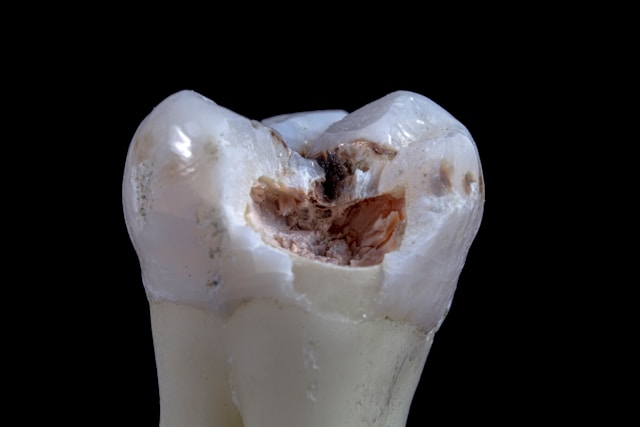


Drinking flavored fruit water or a large glass of orange juice might seem like a healthy alternative to soda, but researchers have warned that these seemingly "healthy" choices could be more harmful than we think.
In a study conducted by researchers at King’s College London in the UK, it was found that drinks like fruit teas or citrus juices can cause permanent damage to tooth enamel—the outer protective layer of the teeth that defends against erosion.
However, the good news is that this damage is not inevitable. The researchers, who have over 20 years of experience, concluded that the timing and method of consuming these drinks can make a big difference in preventing tooth erosion.
To explore the issue personally, a reporter visited the research team and underwent a dental check-up to assess the state of their teeth.
What’s the Difference Between Cavities and Erosion?
From a young age, we’re often warned about cavities—tiny holes in our teeth—and how sweets and chocolate can ruin our smiles.
When we eat sugary foods, the natural bacteria on our teeth feed on the sugar remnants in the mouth, leading to cavities. Unless they become very large, these cavities can usually be repaired with a filling.
But tooth erosion is a different issue. The acids in certain foods and drinks directly attack the tooth enamel, gradually weakening and removing it along with the underlying layer (dentin), making the tooth more vulnerable to damage and sensitivity.
While enamel protects the inner layers of teeth, it cannot withstand repeated attacks from acids and sugars. Once the enamel erodes, the damage is permanent.
Dr. Polyviou Charalambous, a dental surgeon and a member of the research team, warns:
"Tooth erosion occurs when tooth enamel is overexposed to acidic and sugary foods and drinks."
He adds that:
"If left untreated, the loss of enamel can lead to problems like tooth discoloration, cracks or sharp edges, extreme sensitivity to hot or cold, and even a change in tooth color to a more translucent look."
How and When to Drink Without Harming Your Teeth
Dr. Charalambous conducted a simple experiment to measure oral pH levels while drinking orange juice, using a device to monitor acidity in the mouth.
The test involved three methods: drinking normally, swishing the juice around the mouth, and holding it in the mouth for a few seconds.
For optimal oral health, the pH level in the mouth should be close to neutral (around 7). The results revealed some surprising findings:
This experiment demonstrated that keeping acidic drinks in the mouth or swishing them greatly increases the risk of damage by prolonging acid exposure to the teeth.
Dr. Charalambous advises:
"To protect your teeth, avoid keeping acidic drinks in your mouth for too long. It’s better to use a straw, as research has shown that straws help reduce tooth erosion caused by soft drinks."
Timing Is Everything
The King’s College research team points out that consuming acidic foods and drinks—especially between meals—puts teeth at greater risk of erosion.
For example, people who consumed acidic drinks twice daily between meals—such as soft drinks, lemon water, or hot fruit tea—were 11 times more likely to suffer from moderate to severe tooth erosion.
However, when these drinks were consumed with food, the risk was cut in half.
Therefore, by wisely timing your intake—either during meals or shortly before or after—you can better protect your teeth.
Source: BBC Arabic